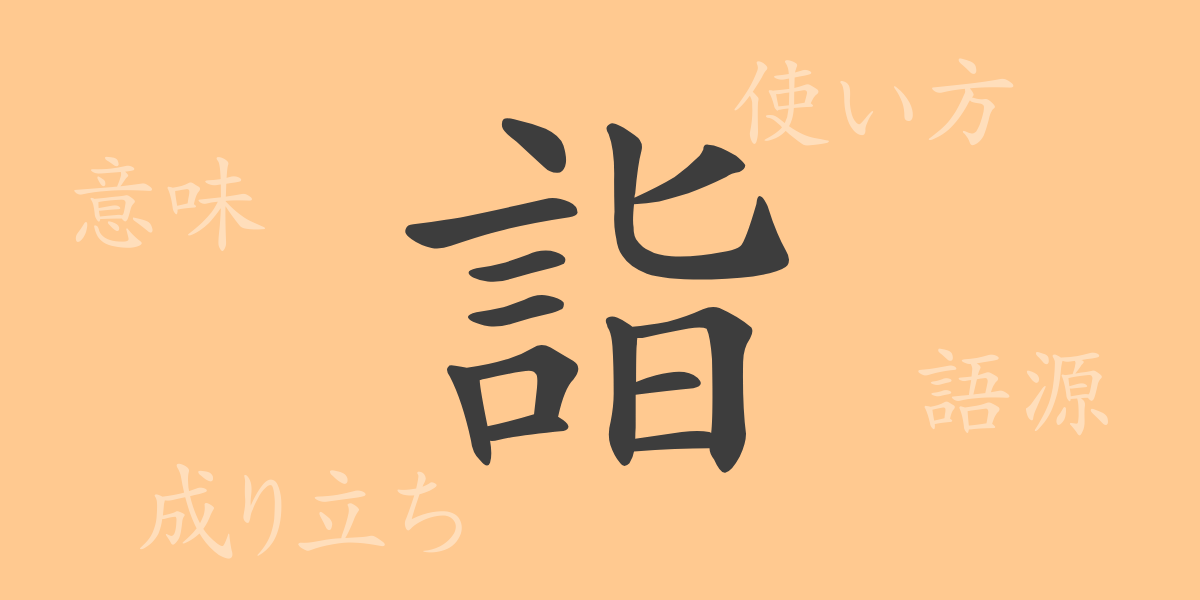The richness of Japanese expression is largely supported by 常用漢字 (jouyou kanji). Among them, “詣(もうで, moude)” carries the unique nuance of visiting a particular place with heartfelt intention. This article delves into the world of “詣(もうで, moude),” exploring its origins and modern usage.
Origin of 詣(もうで, moude) (Etymology)
The kanji “詣(もうで, moude)” originated from ancient China, initially meaning to visit a shrine or temple. The character is composed of “言(げん, gen)” which signifies words, and “旨(し, shi)” which indicates purpose or intention. Together, they convey the act of visiting a sacred place to express one’s wishes or intentions through words.
Meanings and Uses of 詣(もうで, moude)
Generally, “詣(もうで, moude)” refers to visiting a shrine or temple, especially with a heartfelt purpose. It can also be used metaphorically to describe diligent efforts towards achieving something. For example, the verb form “詣でる(もうでる, mouderu)” means “to visit a shrine or temple sincerely.”
Readings, Stroke Count, and Radical of 詣(もうで, moude)
The kanji “詣(もうで, moude)” has several readings, and its stroke count and radical are as follows:
- Readings: The on’yomi (Chinese reading) is “ケイ(けい, kei),” and the kun’yomi (Japanese reading) is “もう.でる(もうでる, mouderu)” or “けい.する(けいする, keisuru).”
- Stroke count: “詣(もうで, moude)” has a total of 13 strokes.
- Radical: The radical is “言(ことばへん, kotobahen),” which signifies words.
Idioms, Expressions, and Proverbs Using 詣(もうで, moude)
The kanji “詣(もうで, moude)” is used in various idioms and expressions, such as:
- 初詣(はつもうで, hatsumoude) – Visiting a shrine or temple for the first time in the New Year.
- 深詣(しんけい, shinkei) – Sincerely visiting a shrine or temple with deep reverence.
- 詣でる(もうでる, mouderu) – To visit a shrine or temple with heartfelt intention.
- 詣で詣で(もうでもうで, moudemoude) – An idiom describing repeated visits to a shrine or temple.
Conclusion on 詣(もうで, moude)
The kanji “詣(もうで, moude)” plays a significant role in Japanese, expressing heartfelt actions, especially visiting sacred places. As seen in various idioms and proverbs, it symbolizes Japanese culture and spirituality. Through this kanji, we can appreciate Japan’s traditions and values.

























